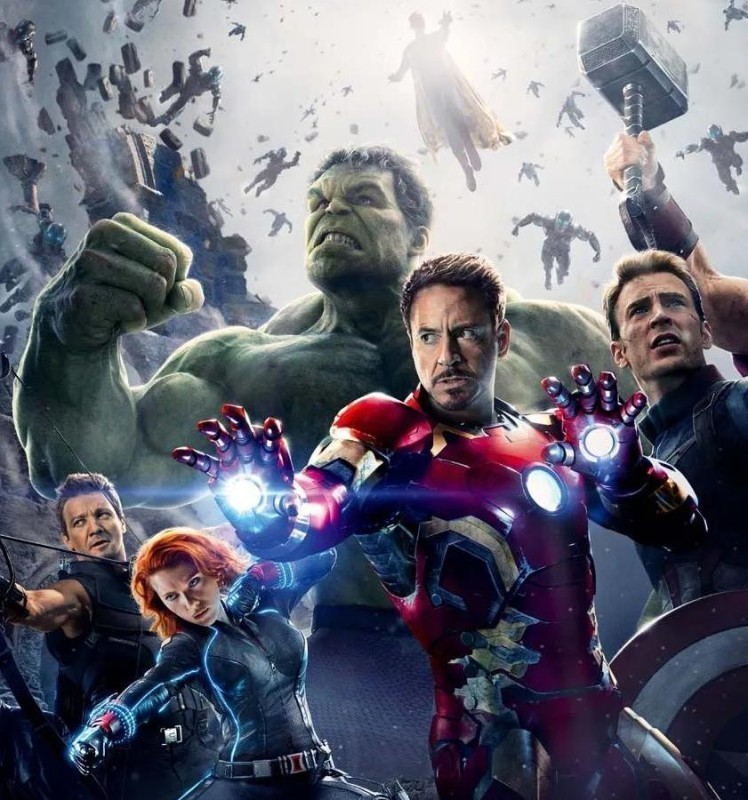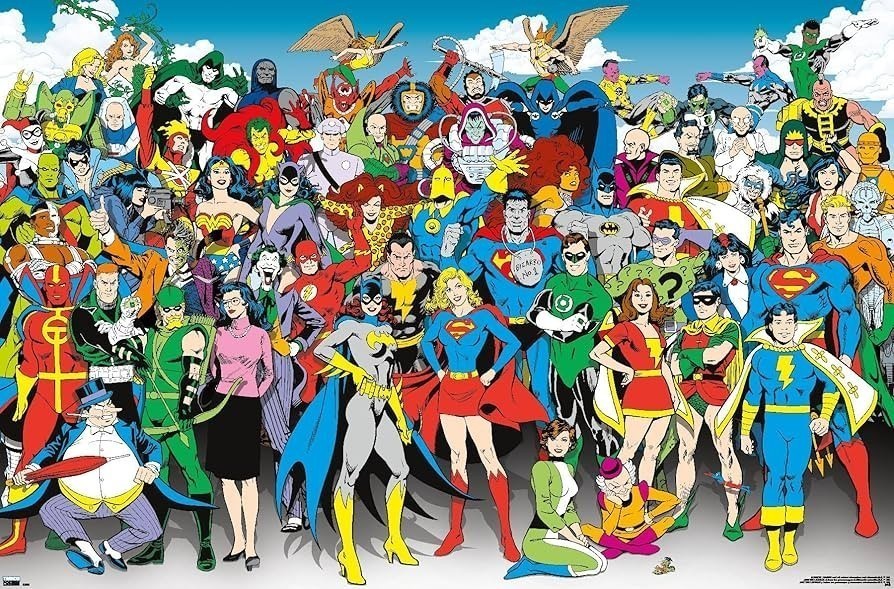Cinematic Universes: Marvel, DC, and Beyond
The concept of cinematic universes has transformed the film industry, creating interconnected worlds where stories and characters from different movies coexist and interact. This approach has captivated audiences and revolutionized storytelling. Among the most prominent examples are the Marvel Cinematic Universe (MCU) and the DC Extended Universe (DCEU), but the trend extends beyond these giants. Let’s explore the development, impact, and future of cinematic universes, focusing on Marvel, DC, and other notable examples.



The Marvel Cinematic Universe (MCU)
The Birth of the MCU
The MCU, launched by Marvel Studios in 2008 with Iron Man, is the most successful and expansive cinematic universe to date. Created by Kevin Feige, the MCU is known for its meticulously planned phases, each comprising multiple films that contribute to an overarching storyline.
-
Phase 1: Began with Iron Man and culminated in the ensemble film The Avengers (2012). This phase established the foundational characters and set the stage for the interconnected universe.
-
Phase 2: Expanded the universe with films like Guardians of the Galaxy (2014) and Ant-Man (2015), introducing new heroes and building on the existing narrative.
-
Phase 3: Featured major events like Captain America: Civil War (2016) and Avengers: Infinity War (2018), leading up to the epic conclusion in Avengers: Endgame (2019).
Key Features and Success Factors
-
Interconnected Storylines: The MCU’s success is largely due to its interconnected storylines, where characters and events from one film impact others, creating a cohesive and engaging narrative.
-
Character Development: The universe has allowed for deep character development and complex relationships, making each hero’s journey more compelling.
-
Cross-overs and Team-Ups: Films like The Avengers and Avengers: Endgame showcase the synergy between different heroes, providing thrilling cross-over moments that fans eagerly anticipate.
Future Directions
The MCU continues to evolve with new phases and series, expanding into streaming platforms with shows like WandaVision and The Mandalorian (produced by Lucasfilm under Disney). Upcoming projects, such as Guardians of the Galaxy Vol. 3 and The Marvels, promise to further explore and expand the MCU’s vast universe.
The DC Extended Universe (DCEU)
Origins and Evolution
The DCEU, launched by Warner Bros. with Man of Steel (2013), aimed to rival the MCU by creating an interconnected universe featuring DC Comics characters. The DCEU’s journey has been marked by both ambitious successes and challenges.
-
Early Films: Man of Steel and Batman v Superman: Dawn of Justice (2016) laid the groundwork for the universe but faced mixed critical reception.
-
Wonder Woman and Aquaman: Films like Wonder Woman (2017) and Aquaman (2018) were well-received and helped to solidify the DCEU’s place in the cinematic landscape.
-
Justice League and Rebirth: Justice League (2017) aimed to bring together DC’s iconic heroes, but its initial release faced criticism. The release of Zack Snyder’s Justice League (2021) provided a reimagined version that was better received by fans.
Key Features and Challenges
-
Darker Tone: The DCEU is known for its darker and more serious tone compared to the MCU’s often lighter and humorous approach.
-
Diverse Interpretations: The universe has explored different takes on classic characters, from the more grounded The Batman (2022) to the fantastical Shazam! (2019).
-
Inconsistent Continuity: The DCEU has faced challenges with continuity and coherence, leading to a more fragmented narrative compared to the MCU’s cohesive approach.
Future Prospects
The DCEU is in a state of flux, with plans to reboot and redefine its approach. Upcoming projects like The Flash and Blue Beetle aim to explore new directions and re-establish the universe. The success of The Batman and other stand-alone films suggests that DC may focus on a more flexible and diverse approach to its cinematic universe.
Expanding Beyond Marvel and DC
Other Cinematic Universes
-
The MonsterVerse: Created by Legendary Entertainment, this universe includes films like Godzilla (2014) and Kong: Skull Island (2017), leading to cross-overs such as Godzilla vs. Kong (2021).
-
The Wizarding World: Originating from J.K. Rowling’s Harry Potter series, this universe extends into prequels like the Fantastic Beasts series, exploring the magical world before Harry Potter’s time.
-
The Conjuring Universe: This horror franchise, initiated with The Conjuring (2013), includes spin-offs like Annabelle and The Nun, creating a shared universe of supernatural horror.
The Impact of Cinematic Universes
-
Audience Engagement: Cinematic universes keep audiences engaged by creating ongoing storylines and character arcs that span multiple films.
-
Franchise Building: These universes offer opportunities for extensive franchise building, including spin-offs, prequels, and sequels, generating additional revenue and fan interest.
-
Cross-Media Integration: Cinematic universes often extend into other media, such as television shows, comics, and video games, further expanding their reach and impact.
Challenges and Considerations
Maintaining Coherence
One of the biggest challenges in creating a cinematic universe is maintaining narrative coherence. Balancing multiple storylines, character developments, and timelines requires careful planning and execution.
Audience Expectations
Meeting the diverse expectations of a global audience can be challenging. Fans have specific visions for their favorite characters and stories, and satisfying these expectations while introducing new elements can be a delicate task.
Financial Risks
Investing in large-scale cinematic universes involves significant financial risk. The success of individual films and the overall universe can impact studio profits, making it crucial to strike a balance between creativity and commercial viability.
The Future of Cinematic Universes
Innovation and Expansion
As technology advances, cinematic universes will likely continue to innovate. Virtual reality (VR), augmented reality (AR), and interactive storytelling could further enhance the immersive experience for audiences.
Diverse Storytelling
Future cinematic universes may increasingly focus on diverse and inclusive storytelling, exploring new genres, cultures, and perspectives. This shift could lead to fresh and exciting narratives that resonate with a broader audience.
Cross-Platform Integration
The integration of cinematic universes across various platforms—film, television, streaming, and interactive media—will continue to evolve, offering new ways for audiences to engage with their favorite characters and stories.



Cinematic universes have redefined modern filmmaking, offering interconnected narratives that captivate and engage audiences. From Marvel's expansive MCU to DC's evolving DCEU and beyond, these universes provide a rich tapestry of stories and characters. As the industry continues to innovate and expand, the future of cinematic universes promises to bring even more exciting developments and immersive experiences. Whether you're a die-hard fan or a casual viewer, there's no denying the impact and allure of these interconnected worlds.












